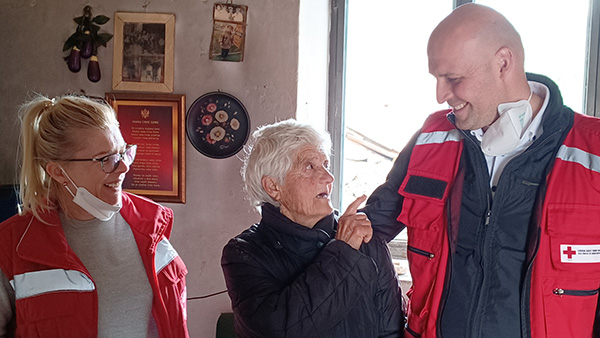
Alongside other national and EU funding, Member States can use the European Social Fund Plus (ESF+) to invest in long-term care and childcare, and for the implementation of the new European Care Strategy from 7 September 2022. The Strategy sets an agenda to improve the situation for both carers and care receivers, and aims to ensure quality, affordable and accessible care services with better working conditions, gender equality and work-life balance of carers.
As Europe’s main instrument for investing in people and implementing the European Pillar of Social Rights, the European Social Fund Plus (ESF+) will be an essential component of implementing this strategy. The fund has a specific objective of enhancing equal and timely access to quality, sustainable and affordable services. This includes services that promote access to person-centred care and healthcare, with a particular focus on supporting children and disadvantaged groups – including for persons with disabilities. The aim is to increase the effectiveness and resilience of healthcare systems and long-term care services.
With ESF+ support, Member States can build a workforce that has the necessary skills to provide the care services Europeans will need in the coming decades. This support can build a care sector that will be better prepared, accessible and more flexible – qualified to provide long-term care for Europe’s most vulnerable and implement the European Pillar of Social Rights.
Member States are already programming ESF+ to meet national challenges and priorities for developing the care sector. Some examples of national ESF+ programmes for 2021-2027 used for care are:
- In Bulgaria, €323 million will go to a national long term care strategy, which will ensure equal and increased access to services at home and in the community for people in need of care, establish social and integrated health and social services and attract and train more workers.
- In Czechia, €165 million will be used to improve health and social care facilities, support community-based services and develop further healthcare and long-term care services for persons in need of care, in particular persons with disabilities. An additional €60 million will also help more than 5,000 children access early childhood education and care.
- In Lithuania, €71 million will be invested in care services and the training of professionals in the long-term care sector.
Other countries, especially from Central and Eastern Europe, such as Croatia, Slovenia and Estonia are also planning to use the opportunities for investing in developing long term care services.
Such ESF+ investments in care can help to make the European Pillar of Social Rights a reality, notably the principles for work-life balance, childcare and support for children – as well as long term care, on which the new European Care Strategy is based.



